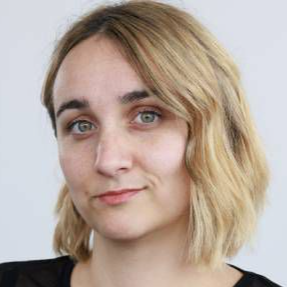The attacks as the complainant described them bore a stark resemblance to offending Goundar was previously convicted on.
He had received a lengthy prison sentence for the earlier offending, during which he kidnapped and violently raped a 15-year-old girl in Hamilton. That offending was introduced as evidence in his recent trials as “propensity evidence”.
While someone’s previous criminal history is normally not allowed to be mentioned to a jury, in some cases the Crown will apply to introduce propensity evidence to show a pattern in a defendant’s behaviour.
Defence lawyer Karun Lakshman told the Herald the use of the propensity evidence in Goundar’s trial worked strongly against him, but the jury still found him not guilty - thanks largely to the addition of a new witness.
The new witness gave evidence in the third and fourth trials that the complainant had told him about the court case and said he was trying to get compensation from Corrections.
“If we hadn’t had [his evidence] we wouldn’t have succeeded,” Lakshman said.
“It’s the first time I have done four trials . . . for me it’s been one of the most difficult cases I’ve done for the, I will say, simple reason that I had to contend with such serious previous convictions.
“With that type of evidence before the jury it is very, very difficult.”
Lakshman was critical of the Court of Appeal’s decision to allow the propensity evidence to be presented to the jury.
The earlier offending happened in late December 2011, when Goundar and his co-offender were driving in Hamilton.
The pair saw two teenage girls and stopped to offer them a lift. The girls, who did not know the men, initially refused, but were later persuaded to get into the car with the promise of food and a ride home.
He then drove them to a rural area. The girls tried to escape when the two men got out of the car to urinate, but Goundar grabbed the younger girl and forced her into the back of the car.
The other victim initially tried to get him to let go of the younger girl, but Goundar’s co-offender punched her in the face, and the pair drove off with the other victim, leaving the second victim lying on the ground.
Goundar then found a secluded spot and ordered the teenager to perform oral sex on him. When she refused he hit her on the head until she complied.
She was raped and made to perform oral sex multiple times, with Goundar threatening to kill her if she did not submit.
The men eventually drove back to Hamilton East and let the girl out of the car.
The complainant in the later case gave evidence Goundar’s alleged abuse against him carried similar patterns, including repeatedly hitting him around the head and threatening to kill him, and also offering food to gain his trust initially.
Lakshman said he plans to file an appeal on the one charge of assault Goundar was found guilty on, which he received a three month prison sentence for.
Where to get help:
• If it’s an emergency and you feel that you or someone else is at risk, call 111.
• If you’ve ever experienced sexual assault or abuse and need to talk to someone call the confidential crisis helpline Safe to Talk on: 0800 044 334 or text 4334. (available 24/7)
• Male Survivors Aotearoa offers a range of confidential support at centres across New Zealand - find your closest one here.
• Mosaic - Tiaki Tangata: 0800 94 22 94 (available 11am - 8pm)
• If you have been abused, remember it’s not your fault.
• Wellington HELP has a 24/7 helpline for people who need to speak to someone immediately. You can call 04 801 6655 and push 0 at the menu.
